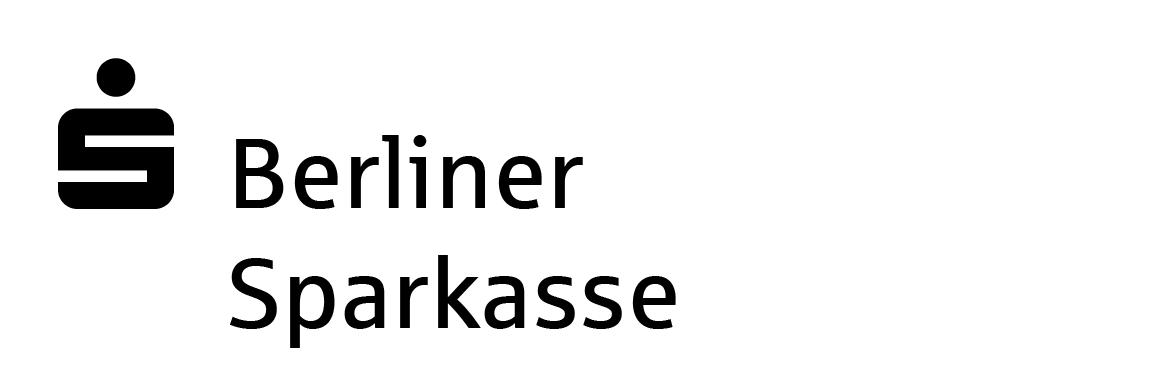
Residence permit in Berlin:
Living and working in the German capital
Want to work in Berlin, looking forward to a new job and now wondering whether you can just live and work here or whether you need a residence permit? We explain what all expatriate workers should pay attention to when applying.
Table of Contents
- Who needs a residence permit for Berlin?
- Who needs a residence permit for Berlin?
- Special regulations on residence permits and work permits
- EU Blue Card – Exemption for third-country academics
- A residence permit is always linked to a specific purpose for your stay
- What are the requirements for the issuance of a work permit?
- Where can I apply for a residence permit?
- How can I apply for a residence permit?
- Requirements for the issuance of a residence permit in Berlin for skilled workers with vocational education
- Requirements for the issuance of a residence permit in Berlin for professionals with academic educational background
Who needs a residence permit for Berlin?
Not everyone who wants to live and work in Berlin needs a residence permit. Do you come from another EU country or a European Economic Area (EEA) country, i.e. Iceland, Liechtenstein, Norway or Switzerland? Then the right to freedom of movement applies to you. You are free to live and work wherever you want within the EU. Of course you have to register in your new country and city. Here[link to registration text], we explain how to register in Berlin.
Residence permits for people from outside the European Economic and Monetary Union
Come from a country outside the EU, so-called third countries? Then you have to apply for a visa before entering Germany. The visa is then converted into a residence permit after you arrive. To clarify whether you are allowed to work in Germany before you enter, your future employer should consult with the Federal Employment Agency in advance about whether you are entitled to work in Germany.
If there is nothing to prevent you from commencing work, you can enter Germany with your visa and then must have it converted into a residence permit, including a work permit, at the Berlin Immigration Office within two months of your arrival.

Special regulations on residence permits and work permits
Anyone from the USA, Australia, New Zealand, Canada, Great Britain, Israel or the Republic of Korea who wants to come to Germany can enter without the need for a visa. However, if you want to work here, you must apply for a residence permit including a work permit at the competent immigration authority no later than 90 days after your entry – in Berlin, the Landesamt für Einwanderung (LEA) is the competent authority. Only when you get a work permit are you entitled to commencing work.
For this reason, it is worthwhile to apply for the necessary documents at the German embassy in your home country prior to entering Germany. This way you can start your professional life as soon as you arrive.

Getting started with your bank account
Sending and saving money has never been easier. Keep your money safe with online banking and the Sparkasse app. Enjoy excellent conditions, a wide variety of services and even expert advice at your Berliner Sparkasse.
EU Blue Card – Exemption for third-country academics
The EU Blue Card has been available in Germany and other EU countries since 2012. It was introduced to enable skilled workers in particularly sought-after professions to easily enter employment in Germany and the EU. Non-EU citizens from third countries can apply for the EU Blue Card if the following requirements are met:
- The applicant must provide evidence of a completed university degree that is recognised in Germany.
- The salary must amount to at least €56,800 gross.
- If the applicant works in a so-called shortage occupation and wants to work in Germany, the minimum required salary is €44,304.
- Shortage occupations include natural scientists, mathematicians, architects, development planners, urban planners and traffic planners, designers, engineers and engineering scientists, physicians (except dentists), and academic professionals in information and communication technology.
- The applicant must already have a concrete job offer or permanent employment.
- The applicant must have any necessary permit to exercise their profession (e.g. for medical doctors).
- The applicant must have health insurance.
Those who apply for an EU Blue Card usually receive permanent residence permits for themselves and their families more quickly.
A residence permit is always linked to a specific purpose for your stay
Your residence permit is always linked to a specific purpose for your stay. German law allows the following purposes:
- Education
- Gainful employment
- International law, humanitarian or political reasons
- Family reunion
- Special rights of residence
If your residence permit does not serve the purpose of gainful employment or education, then you are not allowed to work in Berlin. You must apply for a work permit separately.

What are the requirements for the issuance of a work permit?
If you come from a third country, to get a work permit in Germany, certain requirements have to be met:
- You have a concrete job offer.
- The employment of foreigners does not have any adverse effects on the German labour market.
- Preferred employees (Germans, EU citizens, citizens from EEA countries) are not available.
- As a foreign employee, you are not employed under less favourable working conditions than comparable German employees.
Where can I apply for a residence permit?
Are you already in Germany and want to have your visa converted into a residence permit? Then you need to contact the Berlin Immigration Office (Landesamt für Einwanderung – LEA). Whether you want to work in Germany as an academic or as a skilled worker with vocational education, on the website of the Berlin Immigration Office you will find the relevant information in both German and English, depending on the purpose of your residence permit.
How can I apply for a residence permit?
Basically, it’s best to make an appointment before arriving in Germany, as the lead times are long – as is the case with many authorities in Berlin [link to Registration article]. In general, it takes about eight weeks for a residence permit to be approved. So it’s worth making an appointment in good time. If you want to extend your residence permit, you should make an appointment about four to six weeks in advance.
Requirements for the issuance of a residence permit in Berlin for skilled workers with vocational education
To get your residence permit, you must meet the following requirements:
- You have an employment contract or a concrete job offer.
- The approval of the Federal Employment Agency has been obtained.
- If necessary, you have a licence to practise your profession (some professions, for example nursing, require this).
- Your professional qualification must be recognised as equivalent to German qualifications (you have completed at least two years of apprenticeship in Germany or your foreign qualification is recognised as equivalent).
- You have an adequate retirement arrangement if you have already reached the age of 45 when you arrive in Germany (it serves as proof that you have sufficient financial means or an appropriate salary to provide for yourself financially in old age).
- Your main residence is located in Berlin.
- You must appear in person.
- The charge for initial issuance is €100.
Here you can find out which documents you need to bring with you here.
Requirements for the issuance of a residence permit in Berlin for professionals with academic educational background
Are you an academic who wants to apply for a residence permit in Berlin for the purpose of gainful employment? Then you must meet these requirements:
- You have an employment contract or a concrete job offer.
- The approval of the Federal Employment Agency has been obtained.
- You have, if required, a permit to exercise your profession (for example, physicians and engineers need this).
- Your foreign higher education degree is recognised in Germany.
- You have an adequate retirement arrangement if you have already reached the age of 45 when you arrive in Germany (it serves as proof that you have sufficient financial means or an equivalent salary to provide for yourself financially in old age).
- Your main residence is located in Berlin.
- You must appear in person.
- The charge for initial issuance is €100.
Here you can find out which documents you have to present at your appointment here.

Get in contact with us
We will be happy to advise you
📞 030 869 869 20
✉ expats@berliner-sparkasse.de

Expats Magazine – Overview
Read more interesting articles here.
You might be interested in:

Buying a flat in Berlin
This is how to get your own home!

Your first to-do in Berlin:
Opening a bank account

Welcome to Berlin!
Getting started with your bank account and basic features.
We, your Sparkasse, use cookies that are essential to providing access to our website. If you consent to the use of cookies, we will use additional, non-essential cookies in order to process information on your use of our website for analytical (e.g. to measure reach) and marketing purposes (e.g. to personalise content). As part of this, Google may also provide us with additional data. We also use cookies to assign visitors to specific target groups and provide these target groups to Google for advertising campaigns. For more detailed information about these cookies, please see our Privacy Statement. Cookie consent is optional and not required in order to use this website. To select the kind of additional cookies you are happy for us to use, please click on “Change settings”. You can also consent to the use of all additional cookies by clicking on “Agree”. You can withdraw your consent at any time or change your cookie settings by clicking on the “Change cookie settings” link at the bottom of each page. If you click on “Decline”, we will not use any additional cookies.
